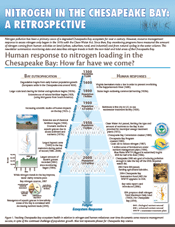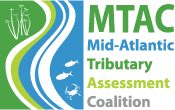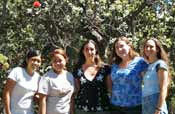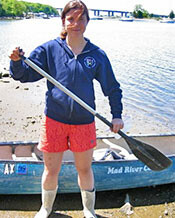UMCES launches Environmental Insights enewsletter
Environmental Insights features recent news and research taking place at the University of Maryland Center for Environmental Science. Each month, we'll highlight the Center's most important work, and how our scientists are applying this new-found understanding to solve environmental problems facing Maryland, the region, and the world.Nitrogen in the Chesapeake Bay: a retrospective newsletter
 EcoCheck – with help from the Tidal Monitoring and Analysis Workgroup (TMAW), USGS, Maryland Department of Natural Resources, and Old Dominion University – has produced a newsletter that summarizes nitrogen monitoring data and trends in both the non-tidal and tidal areas of the Chesapeake Bay. Nitrogen pollution has been a primary cause of a degraded Bay ecosystem for over a century. Since the Clean Water Act of 1972, Bay monitoring programs have measured the amount of nitrogen coming from human activities on land (urban, surburban, rural, and industrial) and from natural cycling in the water column. This information is used to evaluate management actions for nutrient reduction.
EcoCheck – with help from the Tidal Monitoring and Analysis Workgroup (TMAW), USGS, Maryland Department of Natural Resources, and Old Dominion University – has produced a newsletter that summarizes nitrogen monitoring data and trends in both the non-tidal and tidal areas of the Chesapeake Bay. Nitrogen pollution has been a primary cause of a degraded Bay ecosystem for over a century. Since the Clean Water Act of 1972, Bay monitoring programs have measured the amount of nitrogen coming from human activities on land (urban, surburban, rural, and industrial) and from natural cycling in the water column. This information is used to evaluate management actions for nutrient reduction.
Citizens for Science seminar series
 The IAN seminar series has recently expanded into two series: the original 'Science for Citizens', and now a new 'Citizens for Science' series in association with the Mid-Atlantic Tributary Assessment Coalition (MTAC). This new series will focus on monitoring conducted by various citizen science groups in the Mid-Atlantic region. The goal is to use volunteer-collected data to develop eco-health report cards, increase environmental literacy, and empower the public. In the first seminar of the series, Bill Dennison talks about the Challenges and advantages of using citizen scientists for environmental monitoring.
The IAN seminar series has recently expanded into two series: the original 'Science for Citizens', and now a new 'Citizens for Science' series in association with the Mid-Atlantic Tributary Assessment Coalition (MTAC). This new series will focus on monitoring conducted by various citizen science groups in the Mid-Atlantic region. The goal is to use volunteer-collected data to develop eco-health report cards, increase environmental literacy, and empower the public. In the first seminar of the series, Bill Dennison talks about the Challenges and advantages of using citizen scientists for environmental monitoring.
Communicating the cultural and ecological importance of coral reefs
 The COSEE Coastal Trends Coral Reef team has wrapped up the first phase of its project with the Pacific Island Network Inventory & Monitoring Program at the National Park Service. Their efforts culminated in a meeting with Park staff to review mock-ups of diagrams, games, activities, and videos created to help students learn about cultural and ecological importance of coral reefs in the Pacific Islands through inquiry and observation. Because it incorporates the ways in which the Hawaiian, Samoan, and Chamorro cultures are connected to corals, stewardship, and sustainability, this module will be unlike the others previously developed by Coastal Trends. The team is now working with web developer Adrian Jones to transform the mock-ups into interactive web pages.
The COSEE Coastal Trends Coral Reef team has wrapped up the first phase of its project with the Pacific Island Network Inventory & Monitoring Program at the National Park Service. Their efforts culminated in a meeting with Park staff to review mock-ups of diagrams, games, activities, and videos created to help students learn about cultural and ecological importance of coral reefs in the Pacific Islands through inquiry and observation. Because it incorporates the ways in which the Hawaiian, Samoan, and Chamorro cultures are connected to corals, stewardship, and sustainability, this module will be unlike the others previously developed by Coastal Trends. The team is now working with web developer Adrian Jones to transform the mock-ups into interactive web pages.
IAN bids farewell to Kate Boicourt; interns continue work

Kate Boicourt joined IAN in 2006 as a summer intern and later returned to the network in late 2009 as a project coordinator. In this most recent position, Kate worked on coordinating six sector-based climate change adaptation groups to address climate change concerns in Maryland beyond sea-level rise (e.g., changes in temperature and precipitation). Kate is taking a job with the New England Interstate Water Pollution Control Commission as Restoration Coordinator for the NY/NJ Harbor Estuary Program, where she will focus on putting into action a long-term plan to restore the harbor estuary. Meanwhile, interns Kate Bentsen (IAN) and Melissa Andreychek (EcoCheck) continue supporting science communication projects such as the IAN Seminar Series videos and Great Barrier Reef environmental report card.